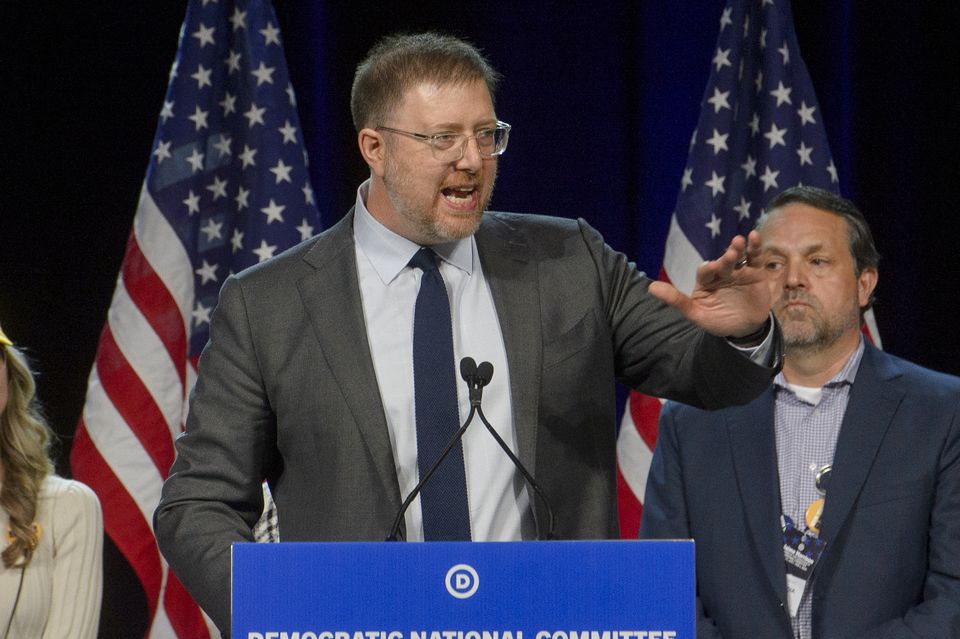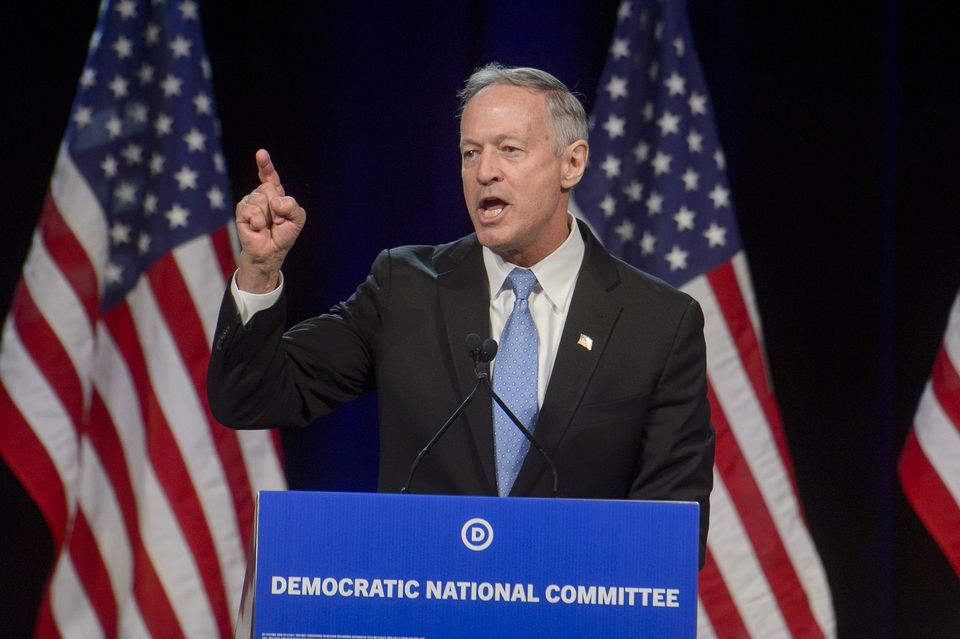Democrats, desperately seeking a new message and messengers to push back against the Trump administration, are electing a new party leader on Saturday in a low-profile race that could have big implications for their future.
The new Democratic National Committee (DNC) chair will succeed Jaime Harrison, who did not seek another term after a tumultuous 2024 election in which Donald Trump became the first Republican to win the popular vote in two decades and made modest gains with core Democratic constituencies — African Americans, Latinos and working-class voters among them.
“The world needs the Democratic Party to get up off the mat,” said Ben Wikler, the Wisconsin state party head who is a top candidate, before the vote. He said the nation is facing a “moment of Trumpian terror”.
More than 400 DNC members from every state and US territory were in suburban Washington for the election, which featured a group of candidates dominated by party insiders.
The leading contenders, Mr Wikler and Minnesota’s Ken Martin, are low-profile state party chairmen. They have promised to refocus the Democratic message on working-class voters, strengthen Democratic infrastructure across the country and improve the party’s anti-Trump rapid response system.
Candidate Ben Wikler speaks at the Democratic National Committee Winter Meeting at the Gaylord National Resort and Convention Centre (Rod Lamkey Jr/AP)
They have pledged not to shy away from Democrats’ dedication to diversity and minority groups, a pillar of the modern-day party. But if Mr Martin, 51, or Mr Wikler, 43, were elected, as expected, either would be the first white man to lead the DNC since 2011.
Also in the race are former Maryland governor and Biden administration official Martin O’Malley, and Faiz Shakir, who managed Vermont Senator Bernie Sanders’ last presidential campaign.
Candidate Marianne Williamson, an activist and author, surprised DNC members before voting began by endorsing Mr Martin as “our best chance to cut the court with the billionaire-funded corruption that will otherwise obstruct and limit our possibilities.”
Most of the candidates acknowledge that the Democratic brand is badly damaged, but few are promising fundamental changes. Indeed, nearly three months after Donald Trump won the popular vote and gained ground among key Democratic constituencies, there is little agreement on what exactly went wrong.
The election comes less than two weeks after Mr Trump’s inauguration as Democratic leaders struggle to confront the sheer volume of executive orders, pardons, personnel changes and controversial relationships taking shape in the new administration.
The next DNC chair would serve as a face of the Democratic response, while helping to co-ordinate political strategy and repair the party’s brand.
Just 31% of voters have a favourable opinion of the Democratic Party, according to a Quinnipiac University poll released this week that offers a dramatic contrast with Mr Trump’s Republicans. Some 43% of voters have a favourable opinion of the Republican Party.
Mr Shakir has called for sweeping changes within the party, such as more co-ordination with labour unions and less focus on minority groups sorted by race and gender. The only Muslim seeking the chairmanship, Mr Shakir was alone during a candidate forum this week in opposing the creation of a Muslim caucus at the DNC.
But he has struggled to gain traction.
Candidate Martin O’Malley addresses the delegates (Rod Lamkey Jr/AP)
Mr Shakir declined to raise money for the contest, decorating his modest booth at this week’s gathering with pictures drawn by his young children with crayons.
By contrast, Mr Martin and Mr Wikler hosted would-be supporters in large hotel suites adorned with dozens of professionally printed signs and offered T-shirts, sunglasses and food.
Mr Wikler has faced questions about his relationship with Democratic donor Reid Hoffman, the billionaire cofounder of LinkedIn. But he cast his fundraising connections as an asset. Indeed, the DNC chair is expected to raise tens of millions of dollars to help Democrats win elections.
Some Democratic leaders remain concerned about the direction of their party.
“As positive as I am and as hopeful as I am, I’m watching this in real time, thinking to myself, we’re in real trouble because I don’t see a desire to change,” said Kansas Democratic chairwoman Jeanna Repass, a candidate for DNC vice chair.

